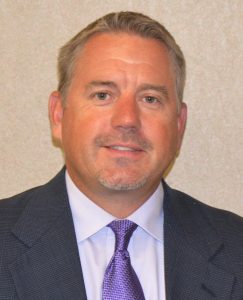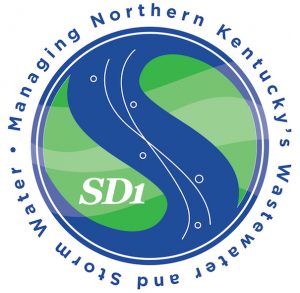Sanitation District No. 1 of Northern Kentucky (SD1) has been working quietly with researchers at the University of Louisville’s Christina Lee Brown Envirome Institute for several months on a wastewater testing program to track the spread of the novel coronavirus in Northern Kentucky through the Institute’s Co-Immunity Project.
This week, SD1 announced the addition of a new funding partner — the Foundation for a Healthy Kentucky, a nonprofit, nonpartisan, endowed foundation working to address unmet health needs in Kentucky by developing and influencing health policy, improving access to care, reducing health risks and disparities, and promoting health equity.
“Identifying troubling trends early in specific areas allows officials to protect the public health in those communities with targeted policy measures, while still allowing the areas where people are wearing masks and practicing social distancing to remain more open,” said Ben Chandler, president and CEO of the Foundation for a Healthy Kentucky. “Experts have learned a lot about this virus, how it spreads and what works to prevent the spread. Wastewater testing gives us regularly updated hotspot information that leads to better, more effective policy decisions.”
Adam Chaney, executive director at SD1, said the partnership SD1 has formed with Dr. Ted Smith and colleagues at the Christina Lee Brown Envirome Institute and the Center for Predictive Medicine is intended to provide the best data possible for local health officials to tailor a strategy specific to Northern Kentucky, rather than relying on a one-size-fits-all approach.
“We are pleased that the Foundation for a Healthy Kentucky shares the vision of the Envirome Institute and SD1 regarding the potential benefits of wastewater testing for COVID-19,” Chaney said.
The Foundation’s investment will allow wastewater samples from nine sites within SD1’s collection system and at the utility’s three wastewater treatment plants to be analyzed by the University of Louisville laboratory. The researchers will be looking for copies of the virus in the wastewater, which can indicate if people in the area are infected — even if they don’t know it yet themselves.
“Probably the single most important thing is to find areas with asymptomatic virus shedders,” Smith said.
The sampling itself takes a matter of minutes, and because SD1 already tests wastewater for a variety of substances, John Clark, SD1 director of plant operations, said the process to collect the samples within the region’s collection system is virtually seamless.
“We are excited about this opportunity to gain COVID data through a unique source,” said Steve Divine, director of environmental health and safety for the Northern Kentucky Health Department. “SD1 has been yet another great partner in our response efforts and we look forward to seeing the results.”
Smith said he believes the study of wastewater could be a promising way to find and reduce COVID outbreaks before they happen. He referenced a study published by Yale last month in which researchers tracked infection rate looking at solids in wastewater compared to later hospital admissions. He said that the University of Louisville’s Co-Immunity Project approach – that includes both randomized testing “above ground” with swabs and blood tests, and “below ground” with wastewater – could be groundbreaking in the fight against COVID-19.
“Expanding the work of the Co-Immunity Project to Northern Kentucky with the unique public health and healthcare assets of that region adds new possibilities, and we hope will become a national model,” Smith said.
From Sanitation District No. 1


















